News
2937
Jambi Governor Reveals Three Green Economy Strategies at COP28 Dubai Forum
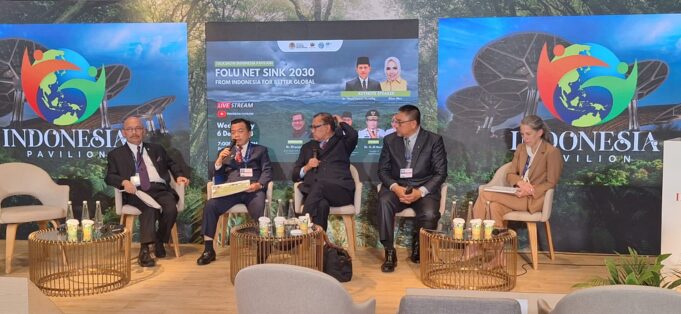
Portal BIOCF
Friday, 08 December 2023 Post 12:12 AMDubai, Aktual.com – Jambi Governor Al Haris was appointed as a speaker (resource person) at The Twenty Eight Conference of Parties The United Nation Framework Convention on Climate Change in Dubai, United Arab Emirates (COP28 UAE) by the Ministry of Environment and Forestry of the Republic of Indonesia (KLHK-RI).
This appointment is in the context of implementing the Ministry of Environment and Forestry's Decree Number SK: 168/MENLHK/PKTL/PLA.1/2/2022 concerning Indonesia's Forestry and Other Land Use (FOLU) Net Sink 2030 for Controlling Climate Change.
In his presentation with the theme: "Strengtening of Sub National Policies as the Real Action for Reducing Greenhouse Gas Emissions in FOLU Sectors", Governor Al Haris on Wednesday (6/12) evening Dubai time conveyed the Jambi Provincial Government's strategy which will continue to focus on efforts and interventions to reduce greenhouse gas emissions.
“Jambi has the most complete forest and land ecosystem on the island of Sumatra. "We have a fairly strong commitment and have REDD+ institutions, as well as consistency in policies to prevent forest and land fires, conflict, Community and Institutional Based Forest Management," he said. said Al Haris.
The General Chair of the Association of Indonesian Provincial Governments (APPSI) added that because his province has a REDD+ priority which has progress in preparing tools, initiatives and collaborative planning interventions across sectors, Jambi has become one of the provinces committed to reducing high levels of deforestation, forest and land degradation. .
“We have 3 pillars of Jambi Province's green economic growth strategy. First, sustainable land use, restoration and increased productivity. Second, human and institutional resource capacity through increasing access to development capital and livelihoods as well as utilization of environmental services. Lastly, connectivity and sustainable value chains,” explained.
So said Al Haris, the target to be achieved from this strategy is sustainable economic growth; inclusive and equitable growth; socio-economic resilience and environmental carrying capacity; healthy and productive ecosystems as providers of environmental services; and reducing the effects of greenhouse gases.
“Apart from that, people are more prosperous with a good environment, higher people's incomes, agriculture that is environmentally friendly and oriented towards community welfare, and sustainable forests have an impact on the implementation of social forestry and customary law communities that are better and more prosperous,” he said.
Then continued Al Haris in supporting the achievement of Indonesia's FOLU Net Sink 2030 target, namely the target of reducing greenhouse gas emissions, Jambi Province through Real Emission Reduction Programs/actions, one of which is the J-SLMP BioCF-ISFL Program, has been synergized into Long Term Planning ( RPJP and RTRW), Medium Term Planning (RPJMD Jambi Province 2021-2026).
“Jambi Province remains consistent with the programs and activities implemented through regional apparatus, Regional Working Partners, Private Sector and Community Groups in an effort to fulfill the Jambi Province GHG Emission Reduction target and the ultimate goal of contributing to reducing Indonesia's GHG emissions and impacting community welfare,&rdquo ; added Al Haris.
For this reason, said Al Haris, strategic support is needed to achieve the optimal target for reducing greenhouse gas emissions in Jambi Province, which can be done with the following steps, firstly increasing supporting financing to support climate change adaptation and mitigation in Jambi Province; secondly, collaborative programs and activities to support the protection of environmental ecosystems and biodiversity through the role of multi-stakeholders.
“Jambi Province has prepared a Grand Growth Planning (GGP) Document as a guide for intervention activities to prioritize community welfare and improve the economy at the site level; encouraging programs related to fulfilling Sustainable Development Goals (SDGs) targets in Jambi Province; increasing the role of cross-sectoral climate change institutions supported by International Donor Institutions; "Finally supporting Jambi Province's policy in developing the One Map Policy,"” concluded Al Haris.
This article was written by:
Editor: Arbie Marwan
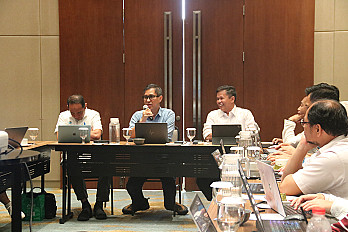
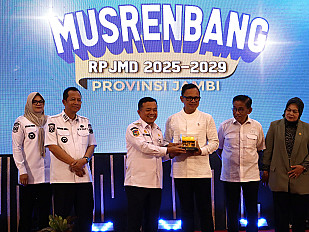


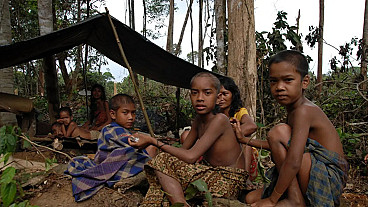
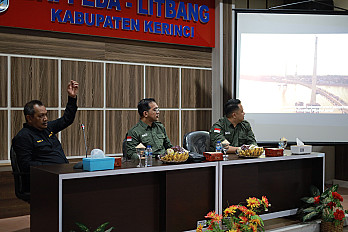

-thumb.jpg)